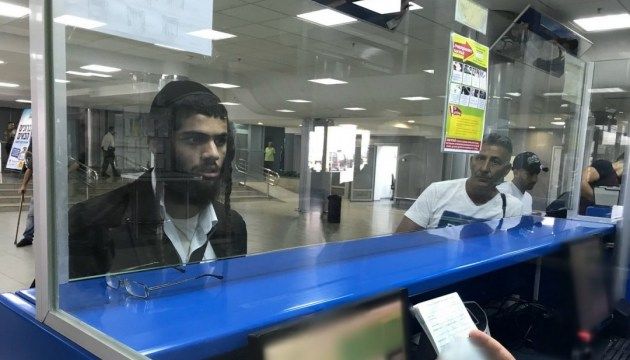Government has restricted the entry of Hasidic pilgrims to Uman

According to Ukrinform, this was reported by the Minister of internal Affairs Arsen Avakov.
In particular, according to him, the Ministry of Internal Affairs initiated the introduction of technical restrictions during the coronavirus period on visiting Uman by foreigners. This initiative was supported by the Cabinet of Ministers and the State Commission on Technogenic and Environmental Safety and Emergency Situations.
The Minister noted that every year in Uman is visited by 30-50 thousand Hasidim from different countries, who for three days celebrate and conduct various religious rites, visit holy places.
This format of a mass event during a pandemic creates enormous risks of spreading the virus not only for the participants of the event but also for the local population, the Ministry of Internal Affairs notes.
According to Avakov, Ukraine respects the national traditions of different peoples and religious communities, and every year everything is done to ensure that they are held to the highest security standards.
"However, in recent weeks, Ukraine has recorded an increase in outbreaks of coronavirus among the population. A similar situation is observed in other states. This forces the governments of these countries to return to stricter quarantine restrictions. We have heard reports from relevant government Ministers and have concluded that the epidemiological situation in the country and the world does not allow organizing and holding mass events, especially with the participation of foreigners," Avakov said.
The Interior Minister recalled that the Ministry of Internal Affairs reached a similar agreement with representatives of the Ukrainian Orthodox Church and the UOC of the Moscow Patriarchate, who refused to hold a Procession through the pandemic and expressed hope for understanding on this issue from representatives of the Hasidic religious community.
Avakov also informed that the Ministry of Internal Affairs would provide all technical measures to implement these quarantine restrictions in Uman.
As reported, the issue of the arrival of pilgrims to celebrate Rosh Hashanah was discussed at a meeting of the State Commission on Technogenic and Environmental Safety and Emergency Situations on August 11.
The Minister of the Cabinet of Ministers Oleg Nemchinov later reported that this year from 5,000 to 10,000 Hasidic believers were expected to arrive. This causes great concern both in Ukraine and in the Ministry of Foreign Affairs of the state of Israel.
Therefore, according to the Minister, the State Commission instructed the Ukrainian Foreign Ministry to intensify communication to keep foreign citizens updated about the restrictions that apply in Ukraine. The Ministry of Internal Affairs should increase and ensure security measures during Rosh Hashanah celebrations.
Also, the State Border Guard Service was instructed to draft a memo on the stay in the country and distribute it at the crossing of the Ukrainian border, as well as to warn about a possible ban on entering Ukraine for several years in case of violation of quarantine restrictions.
At the interdepartmental meeting in the Foreign Ministry of Ukraine on July 9, it was noted that the arrival of tens of thousands of Hasidic pilgrims in Uman for the celebration in the traditional way is impossible. Therefore, an alternative should be provided (participation in the celebration of the limited circle of representatives of the local Hasidic community, organization of live events and the like).
On July 17, Prime Minister Denis Shmygal promised that the government would fully consider the possibility of Hasidic pilgrims arriving this fall and make a balanced decision.
On August 17, Mayor of Uman Oleksandr Tsebriy said that in the event of a mass arrival of Hasidic pilgrims to celebrate the Jewish New year-Rosh Hashanah he was ready to block the entrances to the city.
The city of Uman, where the founder of Bratslav Hasidism, Tzadik Nahman, is buried, is a place of mass pilgrimage for followers of his teachings. In autumn, 20-30 thousand pilgrims from different countries come here to celebrate the Jewish New Year.
In 2020, Rosh Hashanah is celebrated on September 18-20.









